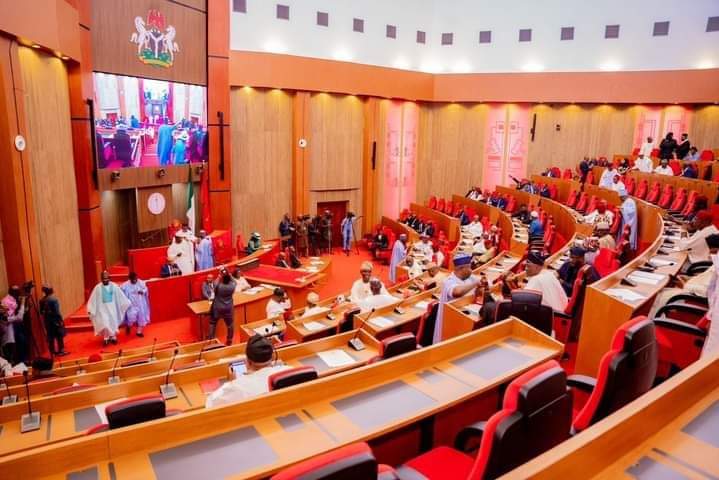The Nigerian Senate, through its Committee on Capital Market, has proposed a significant budgetary allocation of N10 billion (approximately $13 million USD based on current exchange rates) for investor education within the capital market as a key component of the nation’s 2025 budget. This proposal underscores the Senate’s recognition of the critical need to enhance investor participation and financial literacy within the Nigerian capital market as a catalyst for broader economic growth and development. The Chairman of the Senate Committee, Osita Izunaso, emphasized this point during the Securities and Exchange Commission’s budget defense session, highlighting the existing gap in investor awareness as a major impediment to the market’s full potential. This initiative aligns with the broader economic vision of President Bola Tinubu, who aims to grow the Nigerian economy to a $1 trillion scale, with the capital market playing a central role in achieving this ambitious target.
The current state of the Nigerian capital market presents a paradox: while performing relatively well, it suffers from limited investor engagement and a relatively low number of listed companies, which don’t reflect the true potential of the nation’s diverse and growing economy. This disconnect, according to Senator Izunaso, stems from a lack of adequate financial literacy among potential investors. The proposed N10 billion fund is designed to bridge this gap by providing comprehensive investor education programs and resources. By empowering potential investors with the knowledge and understanding of market mechanics, investment strategies, and risk management, the Senate aims to stimulate increased participation and drive greater investment flows into the market. This, in turn, is expected to create a virtuous cycle: attracting more companies to list, deepening market liquidity, and ultimately boosting economic growth.
Senator Izunaso emphasized the importance of collaboration between the legislative and executive branches of government to realize the full potential of the capital market. He commended the Minister of Finance and Coordinating Minister of the Economy, Wale Edun, for his proactive engagement and support in repositioning the market for sustainable growth. The senator highlighted legislative efforts to modernize the regulatory framework governing the capital market, including the repeal of the Investment and Securities Act and the introduction of a new bill awaiting presidential assent. These reforms demonstrate the commitment of the Senate to create a more robust and investor-friendly environment that fosters transparency, protects investor rights, and encourages greater participation.
Minister Edun echoed the Senate’s commitment to creating a stable and attractive investment environment, noting that recent policy adjustments have already begun to yield positive results, evidenced by the positive growth trajectory of the stock market. He acknowledged the pivotal role of the capital market in mobilizing domestic savings and channeling them towards productive investments, driving economic expansion. Furthermore, the Minister outlined the government’s ongoing efforts to explore innovative strategies to encourage wider participation in the market, including leveraging pension contributions to boost investment flows. This approach aims to connect long-term savings held within pension funds with investment opportunities in the capital market, creating a mutually beneficial relationship: providing stable returns for pensioners while injecting significant capital into the market.
The collaborative approach adopted by the Senate and the Ministry of Finance underscores the shared vision for the future of the Nigerian capital market. Both emphasize its critical role as a major engine of economic growth and are committed to building on the progress achieved thus far. The proposed investor education fund signals a proactive strategy to address a fundamental constraint to market development – the lack of widespread financial literacy. By empowering potential investors with the necessary knowledge and tools, the government aims to create a more inclusive and dynamic capital market, one that can effectively channel domestic savings into productive investments and contribute significantly to the overall economic growth and prosperity of Nigeria.
This concerted effort to enhance investor education reflects a broader understanding of the importance of financial inclusion and its implications for economic development. By demystifying the capital market and making it accessible to a wider segment of the population, the government aims to foster a culture of savings and investment, driving economic growth from the ground up. The success of this initiative will not only depend on the effective utilization of the allocated funds but also on the sustained commitment of all stakeholders, including regulators, lawmakers, market operators, and investors themselves, to create a vibrant and sustainable capital market that serves the interests of all Nigerians and contributes meaningfully to the achievement of the nation’s economic aspirations.


